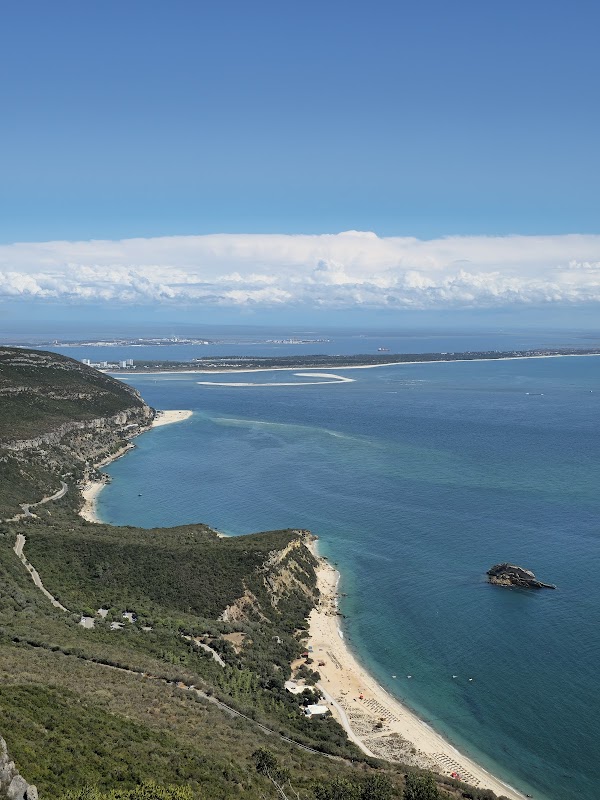
Sailing Into Adventure: Your Guide to Troia Sailing Week in Setúbal, Portugal
Experience the raw thrill of Troia Sailing Week in Setúbal, where tides push and winds dare you to race along Portugal’s Atlantic coast. This guide offers immersive, practical insight for sailors and adventure seekers ready to embrace the sea’s challenge.
Check Weather and Wind Forecasts Daily
Wind conditions shift quickly between the estuary and open sea—stay updated to adjust your route and gear safely throughout the week.
Wear Layered Clothing
Mornings start cool with sea spray, but midday sun warms up quickly; waterproof and thermal layers keep you comfortable through all conditions.
Hydrate Regularly
Salt air and physical exertion increase dehydration risk—carry water and sip consistently, even if you don’t feel thirsty.
Protect Your Hands
Ropes and rigging demand durable sailing gloves to prevent rope burns and maintain a firm grip in wet conditions.
Sailing Into Adventure: Your Guide to Troia Sailing Week in Setúbal, Portugal
Troia Sailing Week offers a gateway to the natural and maritime wonders surrounding Setúbal, Portugal, where wind and water fiercely claim their space. The event unfolds along the stunning Atlantic coast, with a fleet of sails challenging the currents and inviting sailors—novice or expert—to test their skills against the sea’s quiet, yet tenacious pulse.
Setúbal, the nearest city, serves as the ideal launchpad. From here, adventurers set out towards the Troia Peninsula, a stretch of land separating the calm waters of the Sado Estuary from the Atlantic’s restless swell. This mix of sheltered and open water creates dynamic sailing conditions: steady winds push sailors forward while occasional gusts demand precise handling.
Each day of Troia Sailing Week damps the line between competition and camaraderie. Whether racing or cruising, the diverse routes trace the contours of sandy beaches and pine-lined shores, with water that dares you to break its surface tension. Sailors navigate close to sandbanks that shift with the tides, and through channels where the push and pull of currents require constant attention.
Preparation is key for a successful sailing week here. Skippers and crew must ensure their vessels are well-rigged, with safety gear tested and ready. The water’s coolness and the Atlantic breeze mean layered clothing is essential—thermal tops for early starts, with waterproof jackets for unexpected splashes or showers.
Beyond the water, Setúbal offers quick access to seafood markets and warm cafes to recover post-sail, grounding your adventure in local flavor. The Troia Peninsula itself is more than a racecourse—hiking trails through cork oak forests and viewpoints over the estuary invite you to engage with the land between sails.
Troia Sailing Week is both a challenge and an opportunity: to read wind shifts like a language, to move in rhythm with tides, to respect a landscape fiercely itself. It’s a week shaped by fluid elements, demanding focus and rewarding with strong community and stunning seascapes. Whether you come seeking competition or connection, the event equips you with a deeper understanding of the sea and the skills to match it.
Practical advice: bring durable sailing gloves to avoid rope burns, stay hydrated despite the salt and spray, and plan your sails to avoid the midday sun’s glare. Defined by wind and water, Troia Sailing Week transforms your encounter with nature into a vivid, purposeful adventure.
Nearby Trips
All Adventures
Boat Charters
Water Activities
Adventures near Setúbal, Portugal
Discover the unique and memorable adventures that make Setúbal, Portugal special.
Frequently Asked Questions
What skill level is needed to participate in Troia Sailing Week?
Troia Sailing Week welcomes a range of skills, but participants should have basic sailing competence and familiarity with wind and tide behavior, as conditions can become challenging quickly.
Are there opportunities to learn or improve sailing skills during the event?
Yes. Many crews include experienced captains who provide hands-on learning moments. Additionally, some days include workshops or guided sailing sessions tailored to help less experienced sailors.
What wildlife might you encounter around Troia during the sailing week?
Look out for groups of dolphins that often swim near the estuary entrance, seabirds like cormorants and gulls circling above, and occasionally the sharp splash of fish pushing through surface waters.
How should one prepare physically for the event?
Focus on improving cardiovascular endurance and upper body strength, as sailing involves long periods of standing, rope handling, and balance. Dynamic flexibility also helps manage quick movements on deck.
What are the local environmental considerations sailors should observe?
Respect the protected marine areas and avoid disturbing nesting birds or sensitive estuary habitats. Dispose of waste responsibly and minimize noise pollution to maintain the area's fragile ecosystem.
Is there any noteworthy history connected to the Troia Peninsula relevant to the sailing week?
Troia was once a Roman fishing outpost, its ruins just inland. The peninsula’s strategic location has long influenced maritime activity, adding layers of cultural depth beneath the waves.
Recommended Gear
Sailing Gloves
Protect your hands from rope friction and secure grip, essential for all sailing conditions.
Layered Waterproof Jacket
Kept breeze and spray at bay during cool starts or sudden showers without overheating midday.
Polarized Sunglasses
Cut glare off the water for clearer vision and protection from UV rays during bright afternoons.
Hydration System
Easy access to water on board to prevent dehydration in salty, physically demanding conditions.
Local Insights
Hidden Gems
- "Miradouro do Meco – a lesser-visited viewpoint offering expansive estuary and ocean views"
- "Sage dunes stretching quietly beyond the racecourse"
- "Traditional quayside eateries in the Setúbal fish market serving fresh catches"
Wildlife
- "Bottlenose dolphins at the estuary entrance"
- "Migratory birds including spoonbills and flamingos during spring and fall"
- "Common octopus and small reef fish inhabiting nearshore waters"
History
"The Troia Peninsula bears remnants of Roman ruins that hint at its ancient fishing and salt production past, influencing local cultural identity alongside the ongoing maritime tradition."
